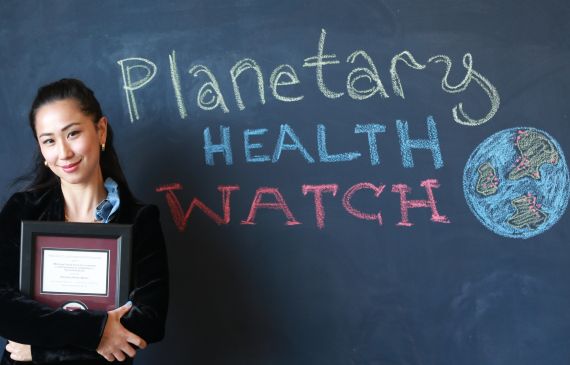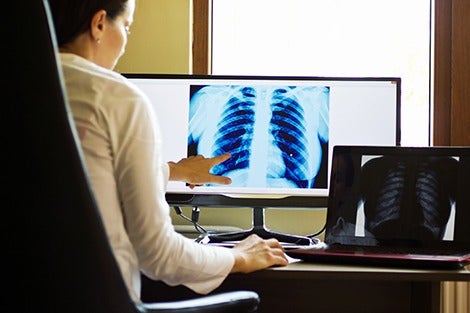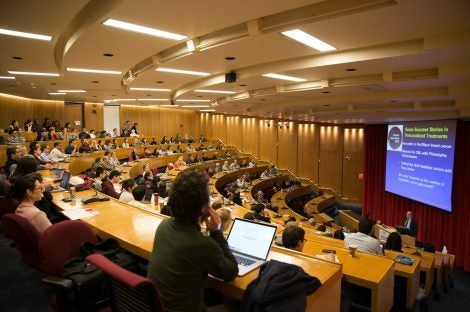Related Topics
Your phone knows how you feel
Harvard Chan School researchers are mining smartphone data to improve health.

Fitness apps can put humanitarian and military workers, others at risk
Using popular fitness apps that track users’ locations on an online map can put humanitarian workers, military workers, and others at risk, Nathaniel Raymond, director of the Harvard Humanitarian Initiative’s Signal Program on Human Security and Technology, said…
Incentive program spurred hospital electronic health record systems
An incentive program established under the Health Information Technology for Economic and Clinical Health (HITECH) Act of 2009 was a key factor that drove American hospitals to adopt electronic medical record systems, according to a study co-authored by…
Student team’s environmental surveillance system wins $10,000 innovation grant
May 4, 2017 – A real-time environmental hazard detection and notification software platform that pools data from social media and other data sources to spot brewing environmental crises and alert the public and authorities to take action netted a…

A web-based tool for detecting infectious disease outbreaks
Nicholas Generous, MPH ’17, a scientist at Los Alamos National Laboratory, and his colleagues published a paper April 18, 2017 in the Nature publication Scientific Reports about a web-based tool to detect and analyze infectious disease outbreaks. Read…
Electronic system lowers wait times for access to specialists
For immediate release: March 6, 2017 Boston, MA – Low-income patients served by the Los Angeles County Department of Health Services (DHS) waited significantly less time to receive specialty care after DHS implemented an electronic system aimed at…

We have the knowledge and technology to reduce global cancer deaths
The world does not need to wait for new cures to prevent cancer deaths, according to David Hunter, Vincent L. Gregory Professor in Cancer Prevention at Harvard T.H. Chan School of Public Health. In an editorial published online…
Study strengthens evidence that cognitive activity can reduce dementia risk
Bias analysis shows any confounding factors not enough to account for benefits found in previous studies For immediate release: August 24, 2016 Boston, MA – Are there any ways of preventing or delaying the development of Alzheimer’s disease…

Can precision medicine help prevent diseases?
Personalized prevention is a nice idea, but more research is needed before it can be effectively implemented.

Can artificial intelligence help predict the likelihood of a heart attack?
It may be someday be possible to use artificial intelligence (AI) algorithms to gauge a person’s risk of cardiovascular disease (CVD). That’s according to research being done by Catherine Kreatsoulas, research fellow in the Department of Social and…